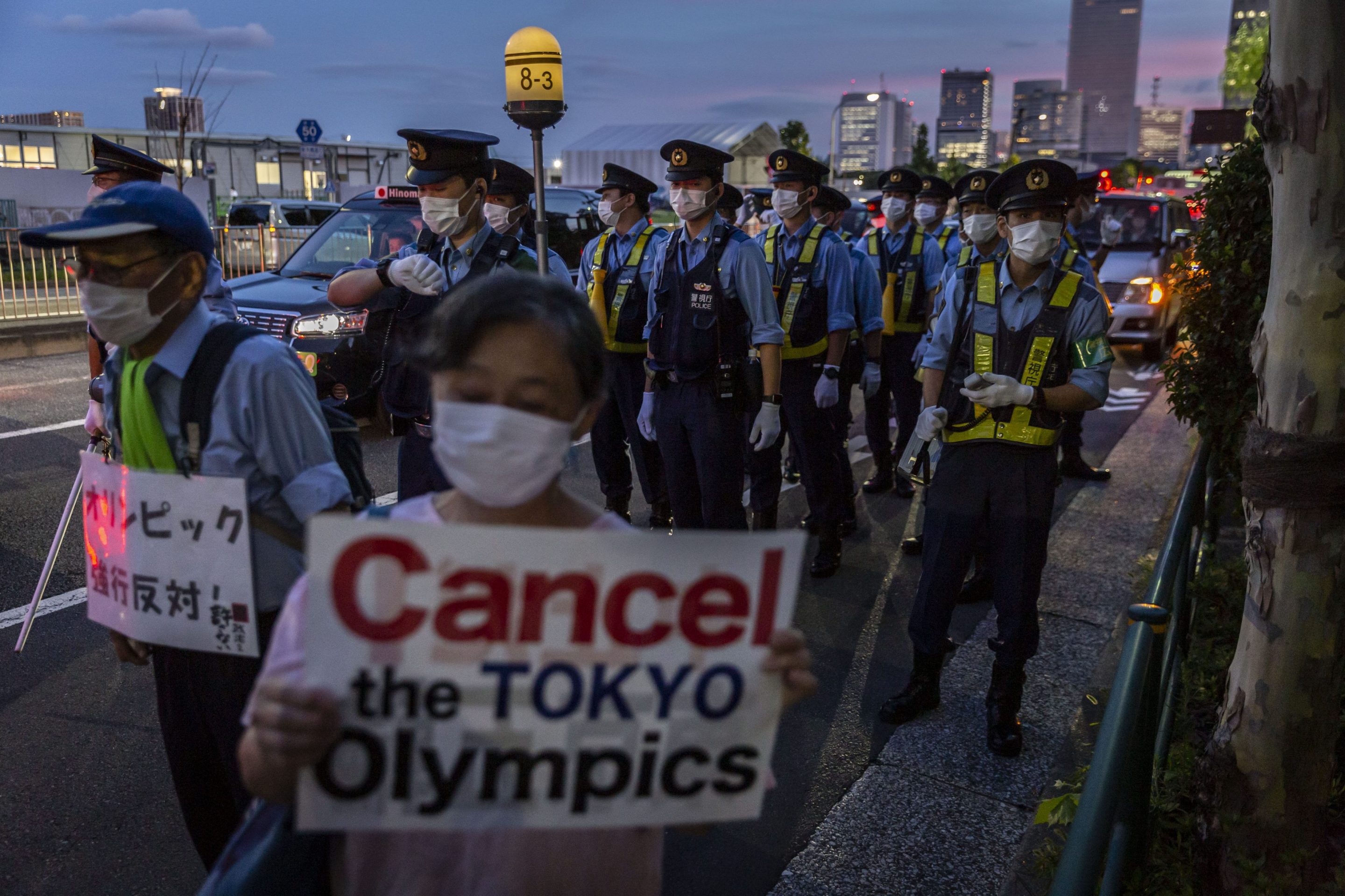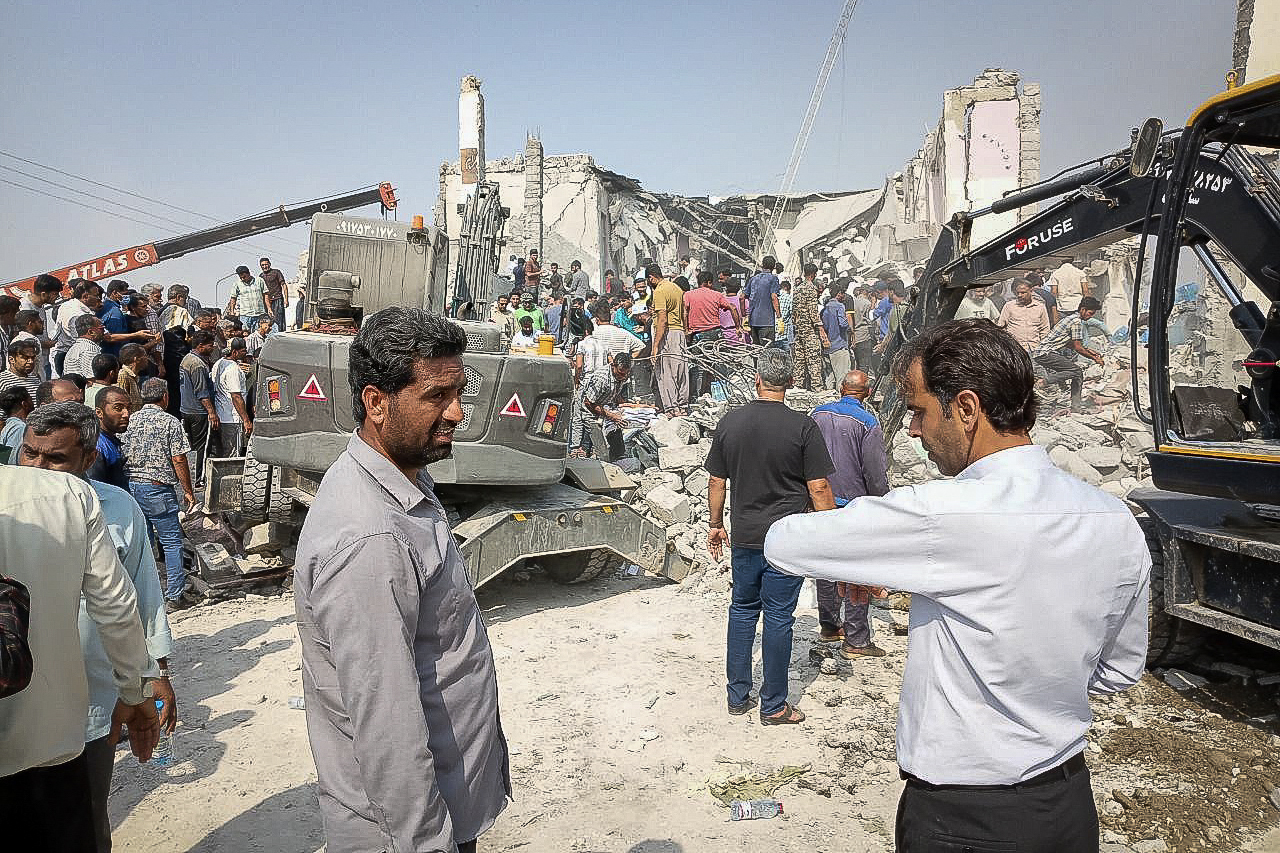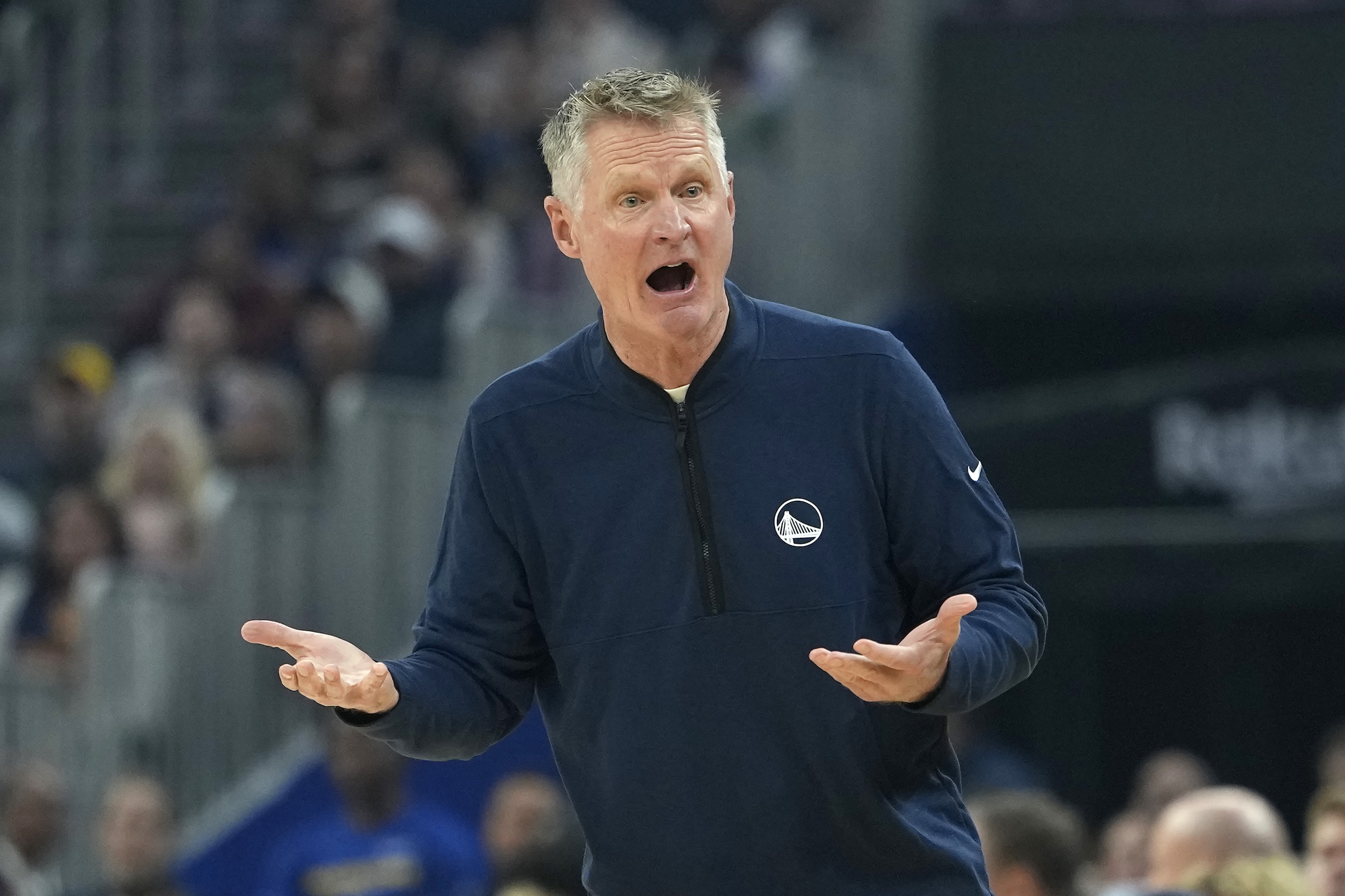As the start of the Tokyo Olympic Games looms, the International Olympic Committee is doing its best to create the illusion of support and excitement for the games while the course of world events does everything to undo that case. Leaving aside the desperate current reality in Japan, which declared a state of emergency related to COVID-19 earlier this month and has seen widespread public resistance to the games, the IOC’s usual gaudy/vague case for the Olympics as a force for unity has become increasingly discordant with the games set to open on July 23.
The world has changed irrevocably in the year since the Tokyo 2020 Games were first postponed, and any idea that the countries of the world could band together in earnest for something genuinely important, or even the Olympics, has been vaporized under the pressure of the pandemic. Any case for the universal humanizing force of sports must work around the fact that wealthy patent holders like Bill Gates denied broader access to vaccines on a whim, while fellow billionaires have felt safe staging their own stunt-intensive space race at a moment of mass suffering and insecurity. Humanity as a whole appears to have backslid morally from the days of fucking polio when it comes to facing down a society-wide crisis. None of it exactly stirs that old Olympic-branded belief in the power of human togetherness. When IOC head Thomas Bach finally showed up in Japan recently, he mixed up the country hosting him with China, prompting more online backlash. If the IOC can’t even be bothered to remember which country they’re exploiting, it’s hard to imagine they’d care much about the suffering those games might cause.
The broader unraveling and devastation of the last year has made the familiar talking points from the Olympics marketing machine ring extraordinarily false. Would an institution dedicated to the exaltation of the human spirit put all these human lives at risk if they gave one high-jumping fuck about any of those professed values?
The situation is no less dispiriting on the ground in Japan. The Japanese Anti-Olympics group Hangorin no Kai has been working against the Tokyo Games for years, and was sounding the alarm against displacement and increased police presence long before the pandemic raised the human stakes and heightened the conflict between what hosting the games demands and what Tokyo’s residents need. “The Olympic Games itself is essentially a structure that legitimizes neoliberalism in the name of sports, drives politics and economics at the will of those with interests, and excludes the weak and marginalized through redevelopment,” an unhoused organizer with the group told me. COVID-19 has pulled down the scrim of propaganda that usually obscures the one true commonality of every Olympics, which is how they exploit civic pride and the very real human interest in sports to both make money for a small group of investors and re-shape public spaces in ways that local residents would never have chosen.
It might be more useful to think of the Olympics less as a quadrennial sporting event and more as an offshoot of the World’s Fair. In the world of the Olympics as it is sold to cities, there will be no negative press, and everyone involved in bringing the games to town will emerge a hero; the ways in which the games might benefit the host city are left obscure by necessity. Despite the dreary inevitabilities of corruption-driven cost overruns and offhand human rights abuses and crushing surveillance creep, this pitch usually works out pretty well for the people selling the games to local grandees—fans really do love to watch, there is plenty of corporate money sloshing around, and the IOC’s media partners are savvy enough to advertise it that way.
There is never a negative word uttered about the Olympics or their real-life consequences for host cities on NBC, whose coverage is necessarily heavy on sentiment and light on anything like broader context. In Japan, though, the hard facts of daily life under the pandemic have made that propaganda an impossible sale. Japan’s population remains largely unvaccinated, and the idea of putting an international athletic competition ahead of the host country’s safety seemingly appeals to no one but those in line to profit from the attempt. It’s not just that you can’t sell nationalism to a nation that’s being failed, willfully and egregiously, in real time. There is that, but there is also the bigger failure—the Olympics just don’t work as a celebration of every noble and beautiful human capacity when they are set to unfold during a literal plague, and in the shadow cast by so many ignoble human failures.
Even before Olympians already in Japan started testing positive for COVID-19—two South African soccer players and a team video analyst reported positive tests over the weekend, and an American gymnast and Czech volleyball player tested positive on Monday—virtually every conceivable dangerous thing related to holding the Olympics had already gone wrong. Local polls demonstrating that a majority of Japan’s citizenry doesn’t want the games, multiple spikes in COVID-19, and a lack of vaccines have not prevented the International Olympics Committee from insisting upon going forward with the Tokyo 2020 Olympics in 2021. So why is the IOC still forcing the issue? Money, mostly, but also because there’s no one to stop them. The rigid and onerous contract that the IOC gets host countries to sign makes it so that only the IOC has the ability to cancel the Olympics. The IOC has made clear that they have no intention of doing so again.
And Japan is already suffering terribly from the pandemic. Hospitals in Tokyo are overflowing with COVID-19 patients and the vaccine rollout has barely begun and is already struggling terribly. A state of emergency has been declared through the next month. The torch run, a tradition that originated during the 1936 games hosted by Nazi Germany, has already led to more COVID-19 infections. Doctors, officials, and civilians have begged the IOC to cancel the games. Mainstream opinion in the country is finally catching on to the argument that groups like Hangorin no Kai have been making for years, which is that the Olympics are a carnival designed around and dependent upon exploitation—of unpaid athletes, natural resources, poor communities, and the universal and blameless human desire to watch athletes do things that have not been done before.
Even before the COVID-19 crisis led the IOC to go full mask off, Tokyo 2020 had done a lot to make itself unpopular on the ground. Development displaced residents, some of whom had also been displaced previously when their homes were razed for the 1964 Tokyo Olympics. The games have long been used as an excuse to disappear homelessness out of sight—see LA ‘84 or Atlanta ‘96 for domestic examples—and the preparation for the Tokyo games was carrying on this less-than-proud tradition by forcing unhoused communities out of public parks. The Japanese government had touted these as “the Recovery games” around the anniversary of the Fukushima disaster, although Fukushima refugees were quick to dispute this hopeful branding by pointing out that stacked piles of nuclear waste persist there. The usual dark comedy beats were hit as things proceeded; the vaunted “green build” somehow wound up using wood from endangered rainforests.
The cynicism of flying the flag of athletic exceptionalism and human potential while people are suffering and dying from a virus that doesn’t discriminate is hard to miss, but it also casts an unflattering spotlight on another one of the Games’ longstanding obsessions—eugenics, the great passion of Olympics founder Pierre de Coubertin, a misogynist, racist aristocrat. The announcement that the Olympics would ban any Black Lives Matter apparel, protest gestures. or political speech certainly feels oppressive, but it’s actually standard protocol for the Olympics. In recent years the Olympics have tried to capitalize on the Black Power salutes of athletes John Carlos and Tommie Smith, but when those athletes raised those salutes in 1968, IOC officials were absolutely furious and immediately expelled them. Very little about any of this is new, give or take a pandemic.
The IOC’s relentless and outlandish tone-deafness is, by now, a fact of life where the Olympics are concerned, although the organization still finds new ways to astound and offend; last summer, the IOC invoked the ire of the Auschwitz-Birkenau Memorial and Museum after the Olympic social media team tried to #ThrowbackThursday the Nazi Olympiad. But, as the Tokyo Games prepare to open in defiance of an unprecedented public health threat and amidst an atmosphere of broad social dread, the illusion of the Olympics as an apolitical gesture of peace and unity has never seemed flimsier. For all that the pandemic has changed, the IOC has made no adjustment whatsoever. The Olympics seem less in tune with their own propaganda about human togetherness than ever.






